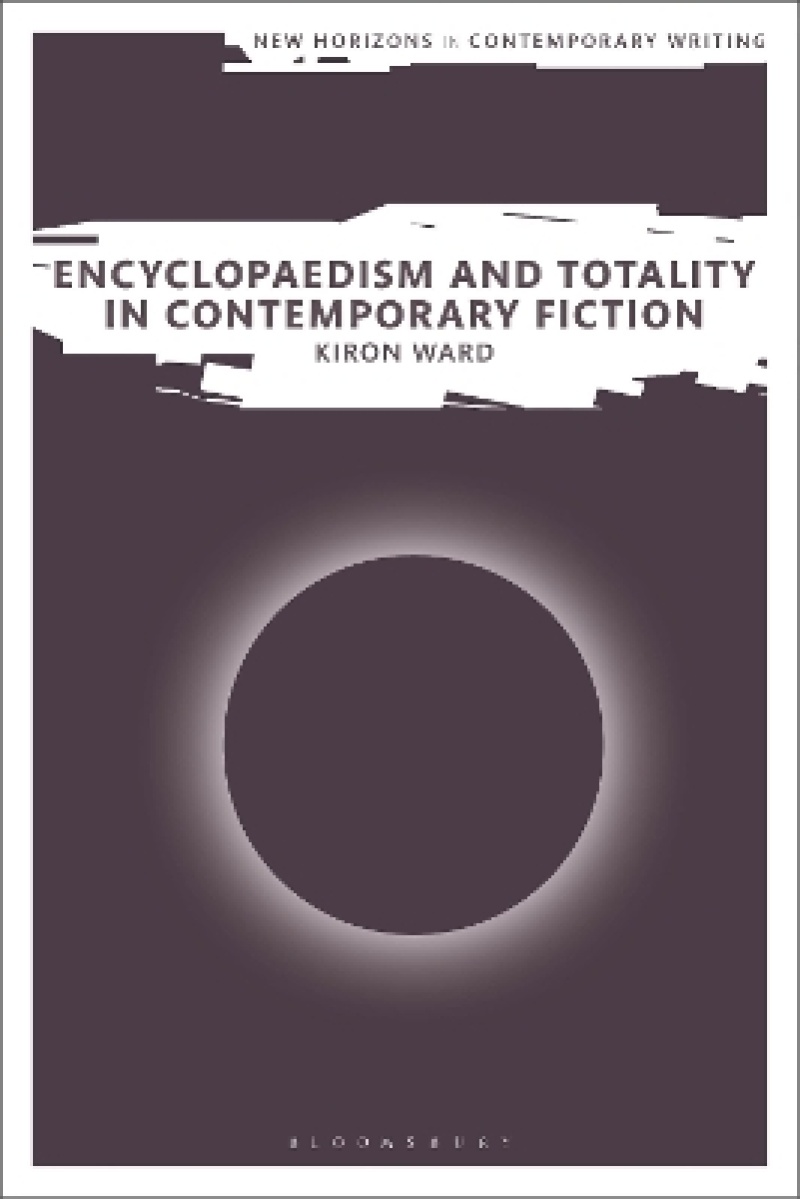<i>Encyclopaedism and Totality in Contemporary Fiction</i> offers a compelling and precisely situated treatment of totality, reification, and the encyclopedic impulse animated by their dialectic. Through inductive readings of late DeLillo, Silko, Bolaño, and Yamashita, Ward builds the case that contemporary encyclopedic novels aspire toward contingent views of totality from within. Best of all is the book’s account of how these fictions redirect encyclopedic attention from the distinguished to the disregarded. At once meticulous and generous, comprehensive and anti-completist, Ward’s study belongs on the same shelf as the works it so deeply understands.
- Paul K. Saint-Amour, author of 'Tense Future: Modernism, Total War, Encyclopedic Form',
An erudite, groundbreaking and decolonising account of the history of encyclopaedism and the encyclopaedic novel. Through close reading of a breathtaking range of world texts, Kiron Ward makes a brilliant case for how the genre's self referential interrogation of the conditions of and relations between knowledge and power now provides a compelling lens through which to examine new and complex interrelationships between identity politics, labour relations, race, environmentalism, and the new digital revolution.
Pat Waugh, Professor Emerita in the Department of English Studies, University of Durham, UK
Taking as key examples work by Don DeLillo, Leslie Marmon Silko, Roberto Bolaño, and Karen Tei Yamashita, this book looks at engagements with encyclopaedic thought and practice in contemporary fiction. Chapters provide important new insights into the new ways that authors approach, reclaim, and use ’totality’—as a method for approaching the contemporary, rather than an object to be represented. In this, we find some of the most radical and challenging attempts in recent fiction to reimagine our world on the back of a contested history and in the face of an unstable future.
Where major studies of literary encyclopaedism have historically tended to draw from the canon, this book looks to move beyond this tradition, and pays particular attention to work from Indigenous, Asian American, and Latin American contexts. In doing so, it looks to address the challenges of reading world literature in the contemporary.
Introduction: Encyclopaedic fictions
1 Don DeLillo and ‘the world as it truly looks
2 Leslie Marmon Silko in ‘the world of the different’
3 Roberto Bolaño’s ‘idea of the world’
4 Karen Tei Yamashita and ‘this principle of the world’
Conclusion: Complete with missing parts
Coda: Olga Tokarczuk, The Books of Jacob, and Wikipedia
Bibliography
In the wake of unprecedented technological and social change, contemporary literature has evolved a dazzling array of new forms that traditional modes and terms of literary criticism have struggled to keep up with. New Horizons in Contemporary Writing presents cutting-edge research scholarship that provides new insights into this unique period of creative and critical transformation.
Series Editors: Bryan Cheyette (University of Reading, UK) and Martin Paul Eve (Birkbeck, University of London, UK)
Editorial Board: Siân Adiseshiah (University of Lincoln, UK), Peter Boxall (University of Sussex, UK), Sara Blair (University of Michigan), Robert Eaglestone (Royal Holloway, University of London, UK), Rita Felski (University of Virginia, USA), Rachael Gilmour (Queen Mary, University of London, UK), Caroline Levine (University of Wisconsin–Madison, USA), Roger Luckhurst (Birkbeck, University of London, UK), Adam Kelly (York University, UK), Antony Rowland (Manchester Metropolitan University, UK), John Schad (Lancester University, UK), Pamela Thurschwell (University of Sussex, UK), Ted Underwood (University of Illinois at Urbana-Champaign, USA).
